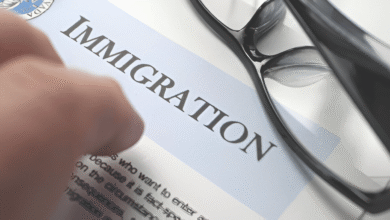How to Avoid Immigration Fraud in Florida Legal Advice from Experts
Immigration fraud in Florida can cost you time & money Learn expert tips to spot scams & protect your immigration process effectively.

Immigration fraud in Florida is a growing concern, with scammers increasingly targeting vulnerable individuals seeking visas, green cards, or citizenship. Fraudulent schemes often involve fake lawyers, false promises of guaranteed approvals, or counterfeit documents all of which can lead to financial loss, legal consequences, or even deportation. Understanding how to identify and avoid these scams is crucial for anyone navigating the U.S. immigration system. This guide provides expert-backed advice to help you protect yourself and ensure a legitimate immigration process.
Florida’s large immigrant population makes it a hotspot for immigration fraud, where con artists exploit confusion about complex laws and procedures. Common scams include unauthorized “notarios” posing as legal experts, phishing emails pretending to be from USCIS, and fraudulent job offers used to extort money. Knowing the warning signs and working only with verified professionals can prevent devastating setbacks. By following trusted legal guidance and staying informed, you can safely pursue your immigration goals without falling victim to deception.
How to Avoid Immigration Fraud in Florida Legal Advice from Experts
Notario Fraud and Unauthorized Consultants
A prevalent scam in Florida involves individuals posing as “Notarios publics” or immigration consultants who falsely claim to have legal expertise. Unlike in some Latin American countries, a notary public in the U.S. cannot provide legal advice or represent clients in immigration cases. These fraudsters often charge exorbitant fees for services they cannot legally perform, such as filing paperwork or guaranteeing approvals. Victims may end up with rejected applications, lost money, or even deportation due to improperly filed documents. Always verify that your representative is either a licensed attorney or a Board of Immigration Appeals (BIA)-accredited professional.
Phishing Scams and Fake Government Communications
Scammers frequently impersonate U.S. Citizenship and Immigration Services (USCIS) or other government agencies through fake emails, websites, or phone calls. These fraudulent communications may demand payment for “processing fees,” threaten deportation, or promise expedited visas if victims send money or personal information. Legitimate USCIS correspondence will always come from official domains (uscis.gov) and never ask for payments via gift cards or wire transfers. If you receive suspicious messages, verify them directly through the official USCIS website or contact number before responding.
Counterfeit Documents and Fake Job Offers
Another dangerous form of fraud involves the sale of fake immigration documents, such as forged green cards, work permits, or Social Security numbers. Victims who unknowingly purchase or use these documents risk severe legal consequences, including deportation and permanent bans from entering the U.S. Additionally, some scammers lure immigrants with fraudulent job offers, claiming they can secure work visas in exchange for upfront payments only to disappear once the money is received. Always verify job offers through official labor certifications (like those from the Department of Labor) and consult an immigration attorney before paying any fees related to employment-based visas.
Red Flags of Immigration Fraud
Unrealistic Promises and Pressure Tactics
A major red flag of immigration fraud in Florida is when someone guarantees specific outcomes, such as visa approval or a quick green card. No legitimate attorney or representative can promise results, as immigration decisions depend entirely on USCIS. Scammers often pressure victims with urgent deadlines, demand cash-only payments, or refuse to provide receipts or contracts all signs of potential fraud. Additionally, beware of anyone claiming “special connections” with immigration officials, as this is a common lie used to extract money.
Unethical Advice and Lack of Credentials
Fraudulent consultants may encourage applicants to lie on forms or conceal information, which can lead to permanent bans from the U.S. if discovered. Legitimate attorneys follow strict ethical guidelines and will never advise falsifying documents. Always verify a professional’s credentials through the American Immigration Lawyers Association (AILA) or your state bar association before hiring them. If they avoid showing proof of licensure or accreditation, they are likely operating illegally and should be avoided.
How to Protect Yourself from Immigration Fraud
Work Only with Licensed Attorneys or Accredited Representatives
For reliable immigration assistance in Florida, always work with a licensed attorney or BIA-accredited representative these professionals undergo rigorous vetting and are legally authorized to handle immigration cases. Beware of “Notarios” or unlicensed consultants who often misrepresent their qualifications; while they may appear legitimate, they lack proper training and authorization to provide legal advice.
Verify Official Government Communication
Be alert for fraudulent calls, emails, or websites pretending to be from USCIS a common immigration fraud in Florida. Scammers use fake government logos, threatening language about your status, or demands for immediate payment to trick Immigration Fraud. Remember Real USCIS notices only come from @uscis.gov email addresses. Official communication will include your case number. USCIS never demands payments via gift cards, wire transfers, or cryptocurrency.
Avoid Paying for Blank or Incomplete Forms
Be wary of anyone charging money for blank USCIS forms these are always free to download directly from the official USCIS.gov website. While Immigration Fraud attorneys may charge fees for legal advice or assistance in completing forms, no one should demand payment simply to provide the forms themselves. Scammers often inflate costs for basic paperwork or claim special access to “required” forms that are actually publicly available.
Research Before Hiring an Immigration Service
Before hiring any immigration service in Florida, it’s essential to verify their legitimacy through thorough research. Check the provider’s credentials with the Florida Bar Association (floridabar.org) or search for accredited attorneys through the American Immigration Lawyers Association (AILA). Look up reviews and any filed complaints on the Better Business Bureau (BBB) website to assess their reputation. Reputable immigration lawyers will always provide transparent fee structures, and clear explanations of the legal process.
Report Suspicious Activity
If you suspect you’ve encountered immigration fraud in Florida, it’s crucial to report it immediately to protect yourself and others. You can file complaints with the Federal Trade Commission (FTC) at ReportFraud.ftc.gov, contact USCIS through their tip line (1-877-382-4357), or notify local law enforcement. Providing details about the scam helps authorities investigate and shut down fraudulent operations, preventing more victims from being exploited.
Read More: Denied Health Insurance Claim in New York? Here’s What to Do Legally
Conclusion
Immigration fraud in Florida remains a serious threat, but with vigilance and the right knowledge, you can navigate the system safely. By recognizing common scams such as fake attorneys, guaranteed approval promises, and counterfeit documents you significantly reduce your risk of becoming a victim. Always verify credentials, use official government resources, and consult only licensed immigration attorneys or accredited representatives. Taking these precautions ensures your immigration journey stays legitimate and free from costly or dangerous setbacks.
If you suspect you’ve encountered immigration fraud in Florida, report it immediately to USCIS, the FTC, or local authorities to protect yourself and others. Seeking guidance from a reputable immigration lawyer can also help rectify any issues and keep your case on track. Remember, legitimate immigration processes take time and careful documentation any shortcuts or too-good-to-be-true offers should raise red flags. By staying informed and cautious, you can achieve your American dream without falling prey to fraud.
FAQs
What is the most common type of immigration fraud in Florida?
Notario fraud, where unauthorized individuals pose as legal experts, is widespread. They often charge fees for services they cannot legally provide.
How can I verify if an immigration lawyer is legitimate?
Check their credentials through your state’s bar association or the American Immigration Lawyers Association (AILA).
Can I report immigration fraud anonymously?
Yes, you can report fraud to USCIS or the FTC without revealing your identity.
What should I do if I’ve already paid a scammer?
Contact law enforcement, report the fraud, and consult a licensed attorney to explore legal options.
Are all Notarios scammers?
Not necessarily, but in the U.S., Notarios are not authorized to provide legal immigration advice unless they are licensed attorneys. Always verify their credentials.











